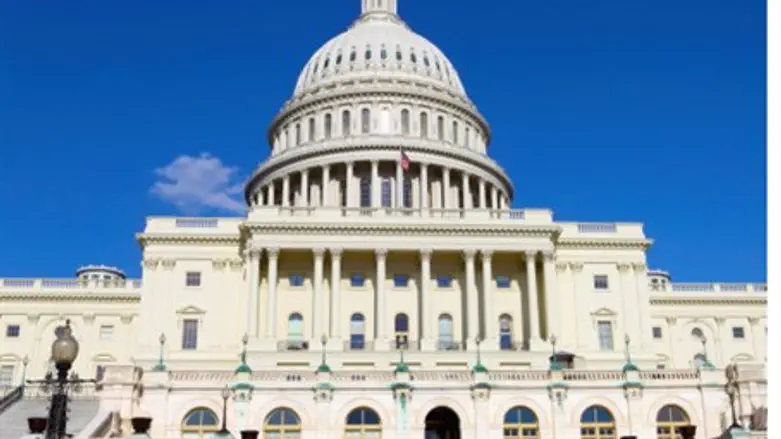
Democratic Reps. Nita Lowey and Steve Israel, both of New York, and Ted Deutch of Florida announced their opposition to the Iran deal on Tuesday afternoon. Lowey is the senior Democrat on the House Appropriations Committee; Deutch is the top Democrat on the House Middle East subcommittee; and Israel until last year led the House Democratic reelection effort.
They are the first leading Democrats and the first Jews in their party to oppose the deal.
However, the administration of Barack Obama got a big boost Tuesday when three influential Senate Democrats -- Barbara Boxer (Calif.), Timothy M. Kaine (Va.) and Bill Nelson (Fla.) -- endorsed the agreement with Iran regarding its nuclear weapons, reported the Washington Post.
After meeting senior diplomats from Britain, France and Germany, Boxer endorsed the deal, saying that she was “more convinced than ever that a rejection of the Iran nuclear agreement would be a victory for Iranian hard-liners and would accelerate their ability to obtain a nuclear weapon.”
Kaine said the talks with Iran had “shown that patient diplomacy can achieve what isolation and hostility cannot.” Kaine admitted on the Senate floor that “this deal does not solve all outstanding issues with an adversarial regime.” In that sense, he said, “it is similar to the nuclear test-ban treaty that President Kennedy negotiated with the Soviet Union in the midst of the Cold War.”
The president held a nearly two-hour long meeting Tuesday evening at the White House with two dozen leaders of the American Jewish community and pro-Israel groups, some of which oppose the plan. Participants told the Post that Obama, acknowledged some of the activists’ concerns about the deal but “expressed frustration at the intensity of the public criticism” of it.
“At one point, he essentially said this would not be as big an issue and as big a fight if basically the pro-Israel community was not making it into a big fight,” said one participant. “That’s the only reason why we are where we are. So essentially, the takeaway was that he was broadly asking the organizations to consider stepping back.”
Obama also complained noted that the American Israel Public Affairs Committee (AIPAC) was spending $20 million in an ad campaign against the deal. The activists “countered that Obama was unfairly characterizing opponents of the deal as preferring a military confrontation, according to people in the room. “
Address on Wednesday
Obama plans to tell the American people in an address on Wednesday that rejecting the nuclear agreement with Iran by Congress would be a "historic mistake," a senior White House official said, according to Haaretz.
Obama's remarks will be a response to Prime Minister Binyamin Netanyahu, who repeatedly called the deal with Iran a historic mistake.
Obama "will make the case that this should not even be a close call – this deal has the most comprehensive inspections and transparency regime that we’ve ever negotiated," the senior official said.
The deal, added the official, "cuts off all of Iran’s pathways to a bomb, and includes a permanent prohibition on Iran obtaining a nuclear weapon."
Netanyahu on Tuesday held a live webcast with American Jewish leaders, in which he warned against the deal again.
Speaking in the webcast hosted by the Jewish Federations of North America and the Conference of Presidents, broadcast to 10,000 people, Netanyahu hit out at unnamed opponents who misrepresented the deal and Israel's stance against it.
"The more people know about the deal the more they oppose it," he added, arguing that the "most outrageous" lie was that those opposing the deal - including Israel - want war, and are against any form of diplomatic agreement.
Such claims are "just not true," he said.
"The alternative is still no deal or a better deal - not war," he said. "The claim Israel wants war is not only wrong - it is outrageous."
He described that as "utterly false," saying that "we are the front lines."
"This is not a partisan issue in Israel. It should not be a partisan issue in the United States."
Congress, meanwhile, continues to review the deal that was reached last month between Iran and six world powers and has until September 17 to accept or reject it.
Republicans have objected to the deal as not tough enough to prevent Iran obtaining a nuclear weapon in the long run, while several Democrats have expressed support.
Obama has threatened to veto any legislation passed by Congress blocking the deal, but Representative Peter Roskam (R-IL) said on Monday he was confident a new Congressional resolution calling to end the Iran nuclear deal would secure the support of two-thirds of lawmakers, thus rendering Obama unable to veto it.
Earlier on Tuesday, Representative Ed Royce (R-CA), Chairman of the House Foreign Affairs Committee, introduced legislation that would prevent the implementation of the Obama administration’s nuclear agreement with Iran.